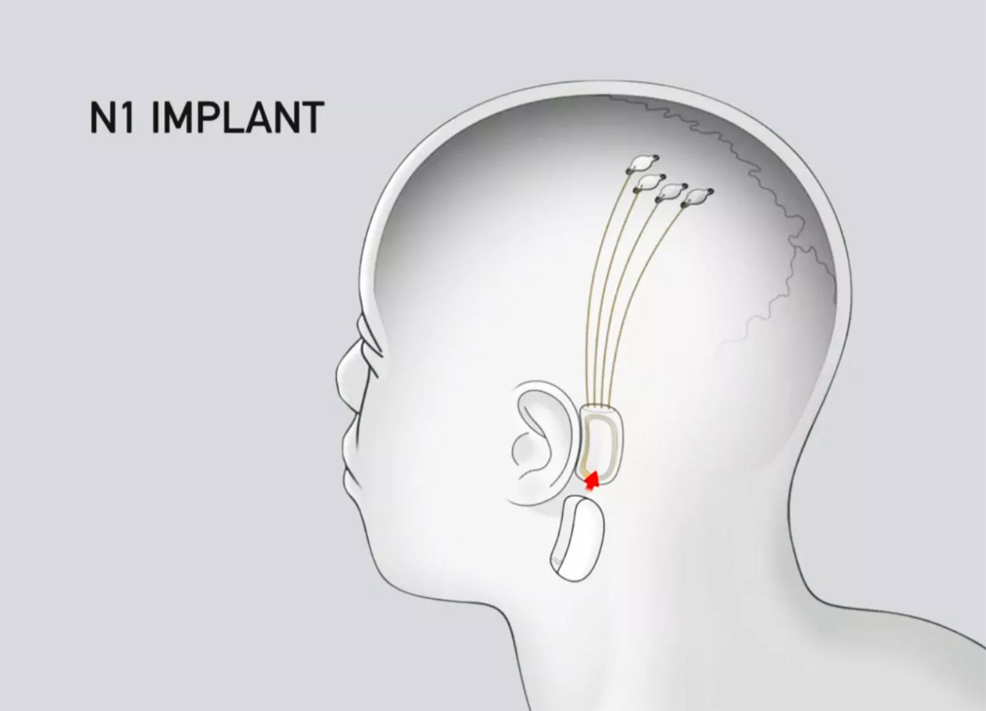
12th September 2019 Report warns of brain hacking technology By 2040, neural interfaces will be an established option for treating a wide range of physical and mental ailments, as well as being used in gaming, fitness and other areas. However, this technology could pose risks to privacy and security, according to a report from the Royal Society.
Neural interfaces are devices implanted in the body, or worn externally, that record or stimulate activity in the brain and nervous system. Examples include cochlear implants, which turn sound into electrical signals sent directly to patients' brains, and prosthetic limbs that move based solely on human thought. Implants can also be used for stroke rehabilitation, treatment of epilepsy, better appetite control and improved sleep and focus. In the near future, experts predict this emerging technology could be applied to an even greater variety of conditions like dementia, obesity, paralysis and a number of mental health issues. High bandwidth medical implants with thousands of microelectrodes are being trialled. Outside of medicine, no internally implanted interfaces are currently licensed, but a new report says this might soon be a reality. Neural interfaces could become widely used for gaming, fitness and well-being. The report, published by the Royal Society, argues that the UK government should launch a national investigation into such technologies – devices that "blur the lines between mind and machine" – and their ethical implications. The report's authors, co-chaired by Imperial College London's Professor Chris Toumazou and Dr Tim Constandinou, outline how neural interfaces could transform medicine and human interaction in the coming decades. Their predictions for 2040 include hands-free control of computers – "typing or entering data using the brain alone as a 'mental mouse' represents a game-changing development that is nonetheless seen as probable," they write.
Beyond 2040, "mental health conditions of many kinds that have defied conventional treatment could be treated using interfaces," with a new market for 'neuroceuticals' to control illnesses by targeting relevant neural signals. Applications like these may be welcomed as much-needed advances, but other developments could raise questions over autonomy, agency and privacy, as well as impacts on social interaction and communities. The ability to read mood from brain signals is already reportedly being used by Chinese companies to monitor employees for signs of anger, anxiety or depression, via devices fitted to safety helmets and caps. According to media reports, companies involved say they are using the data to help workers, but critics say the technology invades privacy. The report, "iHuman: blurring lines between mind and machine" is the first piece of UK research to explore the ethical questions in such depth, and is also the first to propose concrete actions – which include suggesting that policymakers should act swiftly to understand the risks and ensure that appropriate regulations are put in place. The authors say that the government should be more aware of the ethics surrounding the issue, with the public helping to shape the field – rather than solely for-profit companies. While advances like seamless brain-to-computer communication might seem like a distant possibility, "we should act now to ensure our ethical and regulatory safeguards are flexible enough for any future development," says Dr Constandinou.
The report recommends: • A 'national investigation' of the ethical issues presented by neural interfaces, to address questions of what data should be collected, how it is kept safe, and the acceptability of enhancements. • Ministers work with industry and universities to create a UK Neural Interface Ecosystem, which encourages innovation and collaboration in this field. • Government and the UK's Medicines and Healthcare Products Regulatory Authority should trial new ways of encouraging innovation to prevent a monopoly by "Big Tech" firms. This could include a "sandbox" approach for new medical devices to demonstrate their safety and efficacy in a controlled environment. • Giving the public a clear voice in shaping how this technology is used and regulated for the public good and opting citizens out of having their neural data shared as a default. Alongside the report, a public dialogue exercise was led by the Royal Society. This found strong support for neural interfaces in situations where they enable patients to recover something that has been lost due to injury or a medical condition; but less support for the technology when it is used to enhance functions such as memory, concentration, or physical skills among healthy people. "The applications for neural interfaces are as unimaginable today as the smartphone was a few decades ago," said Professor Chris Toumazou. "They could bring huge economic benefits and transform sectors like the NHS, public health and social care. However, if developments are dictated by a handful of companies then less commercial applications could be side-lined. That is why we are calling on the government to launch a national investigation into this emerging field to identify the UK's priorities and let the public help shape how the technology develops and where we want it to take us."
Comments »
If you enjoyed this article, please consider sharing it:
|









